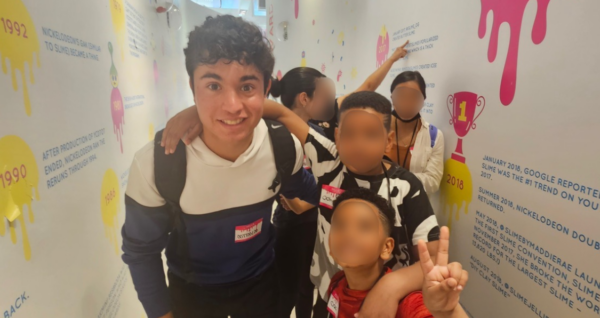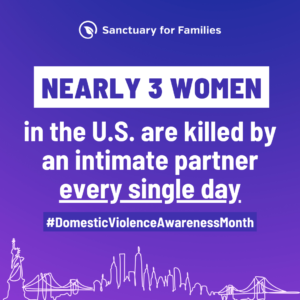Attila Sepkin is a Sophomore at Emory University Business School and plays on the Emory Men’s Soccer team.
Attila Sepkin completed an internship with Sanctuary’s Development team during the summer of 2023. He is a Sophomore at Emory University Business School and plays on the Emory Men’s Soccer team.
Behind the Scenes
Sanctuary for Families holistically creates a “sanctuary” for survivors of gender-based violence by providing a range of services and shelters. At Sanctuary, I worked as an intern in the Volunteer Program. In addition to volunteering, I completed projects at Sanctuary’s headquarters and gained insight into the complexities and inner workings of an immense non-profit—quite a contrast to the “mom and pop shop” I had initially imagined!
Does organizing and managing hundreds of volunteers and guests seem easy? Try doing so in one night – sprinkle in unprecedented air quality issues and concerned attendees—and you have Sanctuary’s 2023 Zero Tolerance Benefit, a tremendous success and the organization’s highest fundraising event thus far! The daily challenges of supervising countless other volunteers/interns and logistics make running such a complicated event appear simple!
Getting to share my passion
I truly learned all about life with a soccer ball at my feet. Growing up, it was: eat, sleep, soccer, repeat. And sleep was an afterthought. Soccer has fostered my closest relationships and fondest memories. It’s posed my largest challenges and sweetest victories, and it built an environment where my external concerns temporarily halted. Soccer has always been a constant in my life. My ball is my reliable companion, my sanctuary.

As part of my internship this summer, I had the privilege of volunteering at Sarah Burke House (SBH), the first and largest transitional shelter for survivors of gender violence in New York City and one of Sanctuary’s five shelters designed to meet clients’ short term needs and prepare them for long term success. As a soccer coach at their summer camp for the children living in shelter, I was granted the opportunity to introduce the game I am ever grateful for – and for that, I am especially grateful!
While soccer may not be for everyone, I believe and hope it can act as a stepping stone for the children to discover a passion of their own. In that way, whatever they pursue can serve as a similar medium for their growth, as soccer has for me. And if nothing else, I believe they enjoyed the workshops – hopefully as much as I did! Seeing the kids laughing while kicking a ball was as sweet as the candy they shared with me at snack time!
Observations at Sarah Burke House
All services at SBH help to form a tightly knit community; interdependent and resilient. The hope is that such powerful support propels the families forward in a positive way.
I witnessed the children specifically build on their excitement and display endless enthusiasm. Rather than me consciously integrating myself within their group, upon arrival I was deemed a friend and role model. They invited me to sit amongst them. They listened intently to what I said. Hearing my name with a “Mr.” attached to it was new to me, but it has been some time since I was five years old. After all, one of the children remembers living in his mother’s “tummy” very well and I have no such recollection.
While I was at Sarah Burke House, “thank you” seemed a way of life: staff welcomed all volunteers with adoration, and parents grinned from ear to ear as they recognized a new face. And to the children, an untied shoe was an insurmountable crisis for which I was their hero. As a volunteer, I aim to benefit others, but at Sarah Burke House, amongst the countless tasks to be completed and difficult subjects to be addressed, it is I who benefited greatly and the experience was a complete pleasure.
To intern within such a large yet cohesive organization focused on social change has been precisely the enriching experience I hoped for. Those that I have met at Sanctuary – those that I have worked with and for – have been among the most kindhearted people I have met. That was exactly why I wanted to intern here, and why I am wholeheartedly glad I did.





